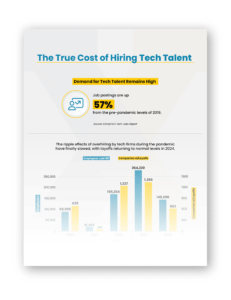Failing to optimize your IT infrastructure can put your business at risk and cause IT costs to spiral. But for many organizations, ever-changing demands combined with a lack of time, resources, and experience with new technologies make managing IT infrastructure a challenge.
The immediate benefits of outsourcing your IT infrastructure management are clear: giving CIOs peace of mind that day-to-day IT standard operations are well-controlled while internal teams focus on more high-impact initiatives.
IT teams pulled in multiple directions often struggle to keep up with the latest infrastructure technologies and operating practices. IT infrastructure has experienced significant disruption in the wake of the pandemic, as emerging technologies like next generation monitoring tools, security services and cloud computing power business recovery.
Currently, 92% of organizations report at least part of their IT environment shifted to the cloud. The pace of change will only quicken as pressure mounts for IT leaders to rapidly create, deploy, manage, and govern dynamic application environments.
COVID demand also intensified the impact of the severe IT labor shortage in the U.S. As cloud becomes the key enabler to digital transformation, for instance, a sobering 90% of enterprises report a shortage of workers with cloud skills.
Not surprisingly, the IT infrastructure outsourcing market is on track to expand by $98 billion through 2024 after soaring to $262.5 billion in 2020. Let’s examine the 6 biggest benefits of outsourcing your IT infrastructure management to a quality provider.
Why outsourcing IT infrastructure management is the right choice for your business
1. Manage cloud complexity
More than 70% of IT leaders reported “negative effects” after the rush to support remote work with cloud technology in 2020. Now that the dust is settling, CIOs are looking to outsourcers to help them make informed cloud decisions, manage ongoing services, and remedy pricey redundancy, complexity, and other mistakes that accompanied the breakneck pace of pandemic change.
Cloud initiatives require specialized skill sets and a new way of thinking to accomplish end-to-end transformation. IT skills gaps often arise on the technical side: for instance, many IT Departments don’t have experience with the specific set of tools utilized by their cloud provider.
Many organizations further lack the expertise to craft a cloud strategy that achieves the full potential of leading platforms like AWS or Microsoft Azure through native tools and services.
Experienced infrastructure management providers are skilled at helping enterprises select and configure cloud infrastructure that can meet and rapidly adapt to changing business needs.
2. Access a new and deeper pool of IT talent while focusing internal teams on core competencies
A major benefit of outsourcing your IT infrastructure management: instant access to highly skilled IT resources without the headache of recruitment and retention in the tight job market.
While the pandemic halted pay raises for many sectors, tech salaries rose 3.6% in 2020 and were expected to increase more this year, states the Dice 2021 Tech Salary Report.
Retention is another serious concern, with turnover reaching a whopping 42% for in-demand IT skill sets like cloud computing. Amidst the labor shortage, replacing IT positions in the U.S. costs an average 100-150% of salary.
In contrast, top nearshore locations in Latin America have invested heavily into developing tech talent. For instance, Costa Rica is so proficient in tech it’s been recognized as the Silicon Valley of Latin America. More than 350 multinational organizations maintain operations in the country, including tech giants like Intel, AWS, and Microsoft.
With two of the region’s most prominent tech universities, Costa Rica also benefits from a constant flow of skilled IT graduates with cutting-edge expertise – expanding the country’s digital labor force by 17% annually.
Tapping this deep, highly proficient talent pool for time-consuming infrastructure management activities gives in-house staff the bandwidth to focus on core business initiatives that drive value.
3. Increase productivity and efficiency by optimizing infrastructure operations
Your IT framework comprises the backbone of your business. But with competing priorities demanding IT’s attention, day-to-day infrastructure management often devolves into a break/fix approach that threatens productivity and leaves staff constantly putting out fires.
In contrast, reliable IT infrastructure management is your outsourcer’s core business. Quality providers have proven processes and best practices already in place to provide proactive service – effectively resolving most issues before they impact productivity.
Few problems are new for IT infrastructure management providers, who perform the same work for multiple clients across a range of technologies. That includes standardized procedures, monitoring and management of network resources, software, and hardware; security; management of databases and data centers; and other support.
Exceptional vendors also invest heavily in training and technology that keeps them current with the latest advancements, capturing the scalability and flexibility to accommodate changing business needs. To maximize results, look for vendors that maintain a continuous improvement mindset based on ITIL and Six Sigma frameworks.
4. Leverage the power of automation without a pricey investment
Automation injects efficiency into your organization, improving the reliability of your infrastructure in mission-critical business processes.
Leveraging a quality provider’s automation capabilities is another key benefit of outsourcing your IT infrastructure management. Choosing an outsourcer with a comprehensive automation platform improves productivity and service consistency with tools like Incident Management, Alert Monitoring, and Robotic Process Automation (RPA) without a pricey technology investment.
5. Control IT costs
Hiring IT staff currently is a costly endeavor. As enterprises compete for limited resources, it’s not unusual for sought-after engineers to fetch annual salaries of $200,000. Many companies further up the ante with six-figure bonuses, outsize equity stakes, and other pricey perks.
The highly skilled talent pool in top nearshore locations enables enterprises to achieve significant cost savings without sacrificing quality. For example, outsourcing to Costa Rica delivers an average 30-50% labor arbitrage compared to IT resources in the U.S.
Outsourcing converts fixed IT costs into variable costs – scaling infrastructure resources up and down as needed instead of carrying pricey in-house teams. It further alleviates expenses associated with office space, onboarding staff, managing employee needs, covering absences, and training.
Outsourcing also helps CIOs avoid the headache and expense of recruiting, vetting, and retaining low-value IT roles. Instead, they can concentrate hiring efforts on higher-level positions that directly impact the strategic direction of the company.
6. Enhance availability and reduce risk
Outsourcing IT infrastructure management to a reputable provider reduces your risk exposure:
- Security. Cybercriminals target unmanaged, unpatched, or outdated IT systems. Having an expert IT team dedicated to managing your systems boosts protection – proactively spotting issues and ensuring patches and updates are applied quickly.
- Compliance. Quality outsourcers have deep experience managing compliance risk, running operations through structured processes and procedures compliant with SSAE-18, Sarbanes-Oxley, and more. They assume responsibility for keeping infrastructure up to date with fast-changing standards and regulatory demands determined by geographic location or industry.
- Data loss. With a comprehensive look at how your organization uses and stores data, exceptional providers can assess the best protection against loss or theft. If a disaster occurs, outsourcing infrastructure management ensures business continuity with best-in-class security, data protection, and disaster recovery capabilities that maximize uptime by restoring operations quickly.
- 24x7x365 rapid response. When IT issues inevitably occur, exceptional outsourcers provide customers with a personalized, around-the-clock response. The best partners offer the ability to request help desk support via multiple contact channels like phone, chat, e-mail, or self-service management portals.
Reap the benefits of outsourcing your infrastructure management with the right partner
Managing IT infrastructure adds little strategic value, but it’s mission-critical to keeping enterprises running smoothly. To gain a competitive edge in today’s fast-paced market, organizations need agile IT operations with specialized, efficiently aligned resources that can support their business in a fast, scalable, optimized way.
Outsourcing IT infrastructure management to the right partner builds a significant advantage: cementing a solid technology foundation that makes your business more productive, competitive, and secure.




